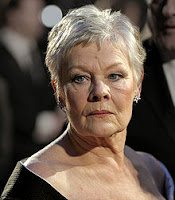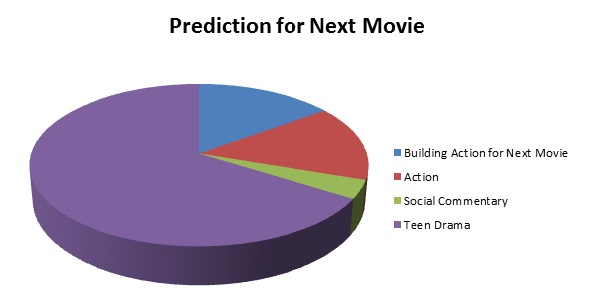I found the following piece in an old forgotten file logged away on my trusty computer. I wrote this piece back in 2008 for a film class, long before Reel Rambling was thought of. Having recently read over this old review, I deemed it worthy to be blog-published. I present from my archive of reviews of classic movies, the illustrious masterpiece, CITIZEN KANE.
When Citizen Kane was released in 1941, Orson Welles brought far more than a story to the big screen; he used a unique narrative form to tell the story of Charles Foster Kane in such an artful way that the audience actually cares about the otherwise unlikable character. Before we are told about Kane himself, we see a montage of his life’s accomplishments. But as the editor of the newsreel says, “It isn't enough to tell us what a man did. You've got to tell us who he was.” The subsequent hours of Citizen Kane are devoted to showing the audience who Charles Foster Kane was as a man, not just a public figure.
The story opens with one of the most famous scenes in film history in which Kane lies upon his deathbed and utters the mysterious word “Rosebud” with his final breath. It is the only scene which shows Kane in the present time; the rest of his appearances take place in the past. As soon as the audience meets Kane, he dies, and the rest of the film takes us through his life as told by various people including friends, ex-wives, employees, etc. By showing exactly what will become of Kane in the first minutes of the film, then backtracking to fill in the rest of the story, the narration would seem to have limited itself. Instead, the audience is driven by the curiosity of what brought a man who had everything to such a miserable end.
In the first few minutes of the film, the audience realizes that the story will be more psychologically based rather than centered on the accomplishments of the character. Following the newsreel of Kane’s public life, the audience knows what he did before the story even begins, but we do not know who he was. According to Bordwell and Thompson, “Unlike many biographical films, Citizen Kane is more concerned with psychological states and relationships than with the hero’s public deeds or adventures” (97). By the film’s end, this fact is sealed when the reporter does not get his story, and only the omniscient audience shares the secret of “rosebud” with the deceased Kane. I found the mystery of “rosebud” to be the driving force of the film. The character of Kane is not particularly personable, relatable, or likable, so it is certainly not his personality that kept my attention. Rather, it was the knowledge that someone who had everything, died with essentially nothing, and that backtracking through his life may reveal one crucial fact about his inner self that explains the motivation for all his actions.
According to Bordwell and Thompson, two storylines dominate Citizen Kane. One is the reporters, scrambling and investigating the person of Charles Kane. The other set of events has already taken place, and although we know they ultimately end in Kane’s death, we do not know the whole story of how he came to be one of the most powerful men in America, or how he ended dejected and alone. While the reporters gather information in the present time, flashbacks are used to show Kane’s story, but curiously, these flashbacks do not occur necessarily in chronological order. What could have been a confusing way to tell the story is instead extremely effective in building suspense and mystery.
With the help of the “News on the March” early on, we are able to place events chronologically ourselves as they occur in further detail throughout the movie. From the start, we know that Kane’s marriages will not last and his friends will drift away, so the outcome of the story is known to us, forcing the audience to “focus on the how and when a particular thing will happen. Thus many scenes function to delay an outcome that we already know is certain” (100). This ordering of events builds suspense for viewer who is waiting to discover how and why an already revealed ending will result. For example, we know when Kane marries Emily that it will fall apart, and we wait to see how it will play out. A passing remark is made about how Emily and Kane’s son were killed in a car accident, which makes one wonder if Kane’s first marriage ended because of this tragic accident, or because of a divorce shortly before.
Another place of suspense that encompasses more time and story than the aforementioned is that we know that Susan will eventually leave Kane, but we do not know when she will finally walk out. Therefore every time there is conflict between Charles and Susan, we expect her to leave him. Each time she does not fulfill the audience expectations, the suspense grows towards a more dramatic climax.
Because the story is told through the recollection of multiple individuals, there are years of time missing from Kane’s story, and several hours of time missing from the reporters’ investigation. The gaps in Kane’s life are filled in for the most part by several montage sequences to speed up slow and enduring themes or events. Shortly after Kane’s first marriage, we see the montage sequence showing the gradual breakdown of the mutual love between the couple. Initially they are seated close together, but by the end of the sequence, they are at opposite ends of the table, years later in their time, but only a few seconds in screen time.
By using a few montage sequences to compress time, the narration can focus on the highlights of the story without losing any of the emotion and feeling. Susan’s opera career is shown through a montage, which allows the audience to see her transformation from a young starlet to a depressed celebrity in a matter of seconds, leaving the remainder of the film with the knowledge that she has attempted suicide, and remains static as she plays with jigsaw puzzles, consumed with loneliness in a separate montage sequence.
In the course of the reporter’s investigation, the people he contacts reflect different phases of Kane’s life, showing the progression of events, and “giving a distinct type of information about Kane” (104). Each person interviewed gives a glimpse into the life of Charles Kane until the time of his death.
“Thatcher establishes Kane’s political stance: Bernstein gives an account of the business dealings of the newspaper…leading into Leland’s stories of Kane’s personal life, where we get the first real indications of failure. Susan continues the description of his decline with her account of how he manipulated her life. Finally, in Raymond’s flashback, Kane becomes a pitiable old man” (104).
Each character provides the audience with a different view or different period of time in Kane’s life, adding layers to the complexity of Kane’s character. Each time a story is shown through a different character, the story comes together like a jigsaw puzzle. We have the benefit of seeing a little more than is revealed to the reporters, and we have the advantage of discovering the meaning of “rosebud”—a mystery that will never be revealed to the characters of the film.
Perhaps the most brilliant aspect of Citizen Kane is the revelation of the meaning of “rosebud” in the end of the movie. As soon as the audience sees the word printed on an old sled, the pieces of the puzzle all come together. Not only does this final scene serve as a powerful ending to communicate what the deepest desire of Kane’s heart was, it made me want to see the film again immediately to look for hints throughout the film that I may have missed the first time.
As Citizen Kane ends, digressing back through the images that ushered the audience into Xanadu, I left with a strong sense of melancholy and satisfaction. While the story of Charles Foster Kane was by no means inspiring, Orson Welles’ genius allowed me to share in the secret of “rosebud” before the key to the secret disappeared into black smoke, billowing out of the ominous Xanadu. As a viewer, the satisfaction was in knowing that I knew something of Kane that the characters in his world would now never know. While they could surmise about the spirit of the mysterious man, I held the final piece to the jigsaw puzzle.
Cited: Bordwell, David and Kristin Thompson. Film Art: An Introduction. McGraw-Hill Publishing 2006































